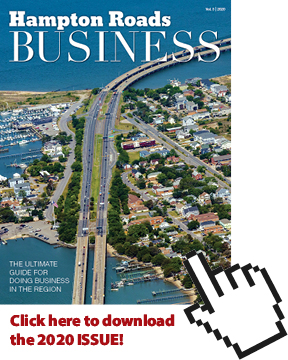On the subject of time, the much-beloved children’s book author Dr. Seuss once wrote, “How did it get so late so soon?” With December here, that’s an almost perfect description of 2020. How did it get so late, so soon?
Most of the past 8 to 9 months have been characterized by an almost immutable sameness. We get up, we work from home or go to an almost empty office, we go home and then repeat it all again the next day. Working from home makes weekends largely indistinguishable from weekdays.
2020 has been defined by home-delivered groceries, and most certainly, less time in restaurants. Also, little or no time in hotels or airports or on any sort of business travel. No group meetings, either. 2020 is the year that a company named Zoom became both a noun and a verb. It’s a year that has zoomed by — let’s call it a virtual year.
Looking back, there are many things I won’t miss about 2020. I’ll be happy to give up food steamed to lukewarm imperfection in a cardboard takeout box. Paying rent for a near-empty office? I can let that go. I’ll be happy to give up fear of COVID-19, masks or no masks, and even denial of COVID-19. Elections and politics? Let’s not even go there.
On the other hand, it has been kind of nice that rush hour hasn’t existed and parking has been easy. It has been nice to build stronger relationships with the few people that are in the office. I somewhat miss the frantic energy of weeks spent crisscrossing Virginia on 1,000-mile drives for business events, but not doing so has translated into more productive office time.
For the media business, 2020 has been particularly interesting. For perhaps the first time, the global high-tech barons of digital media are beginning to understand that they are not exempt from the responsibility to truth and democracy that more traditional media outlets have always taken very seriously.
An understanding of journalistic norms and values, such as truthful content supported by facts, as well as labeling content appropriately, has been much needed in the world of social media. It seems that 2020 may be a breakthrough year in correcting the failure of many digital outlets to take ownership of these values for the good of the audience and our democracy. This isn’t censorship; it’s just what good publishers do for the benefit of their businesses and for the benefit of their customers.
How did it get so late so soon?
Looking back over my time in publishing, the pre-digital days don’t seem that terribly long ago. Being in the media business in the pre-digital days meant deploying a significant amount of capital to invest in a printing press, or a broadcast transmitter, a tower and an FCC license. These capabilities didn’t come cheaply. Printing presses alone could easily run into the tens of millions of dollars and were considered a once-in-a-generation investment.
From a business perspective, the discipline of taking out debt, making capital investments and generating a return on that capital was, and still is, a good thing. Publishers took this responsibility seriously — their money was on the line. Distributing false or misleading content has never been a sustainable business model.
Replacing printing presses and broadcast towers with free, easy and often-anonymous content via the internet has led to many innovations, but it has also cheapened our public discourse. There is a reason why our founders put the First Amendment first. Freedom of the press is simply that important to our democracy. But like all freedoms, it comes with responsibilities.
As the clock winds down on 2020’s final days, I’m sure there are many things we’d all like to leave behind. COVID-19 will stretch on a bit, but not forever. At Virginia Business, we look forward to the days ahead. We take our responsibilities seriously and thank you for your readership.
What would the Cat in the Hat say about that?









